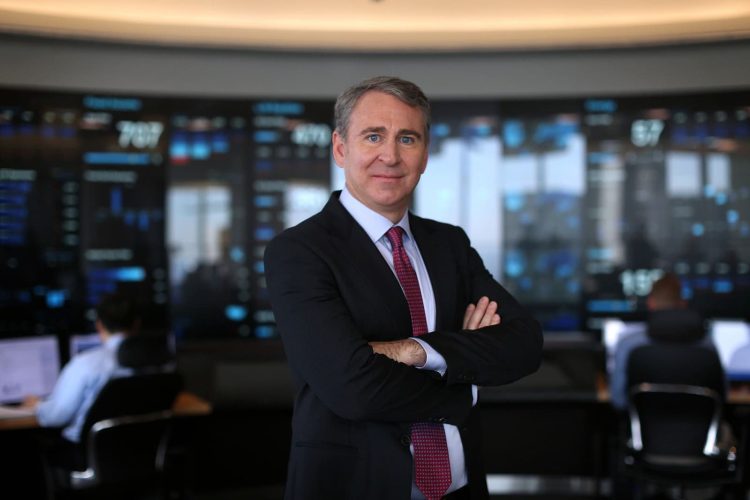For millions of Americans, the work-from-home lifestyle that began as a necessity has evolved into the new (and preferred) normal after more than two years of the Covid-19 pandemic. According to a Pew Research Center research released in February, 61 percent of employees who have the opportunity to return to an office prefer to do so.
However, not everyone agrees. Citadel founder and CEO Ken Griffin said on Thursday that he invited his employees back into the office because he believes that a remote workforce hinders innovation and creativity, according to Newsweek.
Griffin is a hedge fund manager, entrepreneur, and investor from the United States. He is the founder, CEO, co-chief investment officer, and 80 percent owner of the international hedge fund Citadel LLC, and his net worth is reported to be $29.6 billion.
Griffin expressed his viewpoint at a Bloomberg Intelligence conference in answer to a question on how Covid has changed the way hedge funds operate. The billionaire bemoaned the “significant loss” of connectivity caused by Zoom sessions, but stated that all Citadel employees, with the exception of those in a few Asian jurisdictions, have returned to work.
“And I believe that teamwork within our four walls has been an extraordinarily essential component of our two-and-a-half-year success story,” Griffin added. “It’s something I hope all of corporate America would embrace because, as you can see, and as more and more studies show, remote workers’ invention and creativity suffer.”
Griffin noted that the forced return to in-person work has resulted in resignations in a “handful” of cases, but that employees have adapted fairly well overall. When employees were told they could work from home during the Omicron spike, “most people remained coming to work,” according to Griffin.
Griffin went on to remark that individuals are “creatures of habit” who “develop new habits fairly quickly” and, as a result, recognise the importance of separating work and home life.
Many people disagree with Griffin’s viewpoint, with some even suggesting that individuals who feel everyone should work in person should stretch their creative muscles.



















